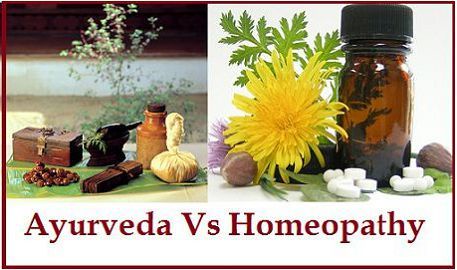In the world of alternative medicine, two popular practices that often come into discussion are Ayurveda and Homeopathy. Both systems have gained recognition for their holistic approach to healing and their emphasis on natural remedies. While Ayurveda originated in ancient India thousands of years ago, Homeopathy was developed in the late 18th century by German physician Samuel Hahnemann. In this blog, we will delve into the key differences between Ayurveda and Homeopathy, explore their benefits, and discuss why one might choose to use either of these practices.
Key Differences between Ayurveda and Homeopathy:
Principles and Philosophy:
Ayurveda for Health is a traditional system of medicine that focuses on the balance of body, mind, and spirit. It believes that each individual has a unique constitution, or dosha, consisting of three energies - Vata, Pitta, and Kapha. Ayurveda aims to restore the balance of these energies through diet, lifestyle changes, herbal remedies, detoxification, and yoga.
Homeopathy for Health, on the other hand, is based on the principle of "like cures like." It suggests that a substance that causes symptoms in a healthy person can be used in highly diluted form to treat similar symptoms in a sick person. Homeopathic remedies are prepared by repeatedly diluting and succussing (shaking vigorously) substances to activate their healing properties.
Diagnosis and Treatment:
Ayurveda Treatment diagnoses ailments by assessing the patient's constitution, lifestyle, medical history, and physical examination. It aims to identify the root cause of the disease and treat it through personalized recommendations, including dietary modifications, herbal medicines, massages, meditation, and yoga.
Homeopathy, in contrast, focuses on individual symptoms rather than the underlying cause. Homeopathic practitioners analyze the totality of symptoms and match them with a specific remedy from a vast range of substances. These remedies are highly diluted and administered in small doses to stimulate the body's healing response.
Medicines and Formulations:
Ayurveda employs a wide range of herbal medicines, minerals, and animal products. These substances are often prepared through various methods, such as decoctions, powders, oils, and pastes. Ayurvedic formulations are based on the concept of balancing the doshas and promoting overall well-being.
Homeopathic remedies are derived from natural sources, including plants, minerals, and animal substances. They are prepared through a process of serial dilution and succussion, which makes them extremely diluted and potentized. Homeopathic medicines are dispensed in the form of sugar pellets or liquid drops.
Benefits of Ayurveda:
Holistic Approach: Ayurveda considers the whole person - body, mind, and spirit. It emphasizes the importance of maintaining a harmonious balance between these aspects for optimal health.
Personalized Treatment: Ayurvedic practitioners tailor treatments according to an individual's unique constitution, allowing for personalized care and addressing specific health concerns.
Natural Remedies: Ayurveda primarily employs natural remedies, such as herbs, spices, and oils. These substances are often well-tolerated and have minimal side effects when used correctly.
Prevention and Long-Term Health: Ayurveda not only focuses on curing ailments but also emphasizes disease prevention and promoting long-term health through lifestyle modifications and dietary recommendations.
Why Choose Homeopathy:
Individualized Treatment: Homeopathy Treatment treats each person as a unique individual and takes into account their specific symptoms and overall constitution. Remedies are prescribed based on this individualization.
Safe and Non-Toxic: Homeopathic remedies are highly diluted, making them safe for use, even in infants, pregnant women, and the elderly. They do not have the same risk of side effects as conventional medicines.
Stimulating Self-Healing: Homeopathy stimulates the body's natural healing mechanisms and enhances its ability to restore balance and overcome ailments.
Complementary Medicine: Homeopathy can be used alongside conventional treatments to support the healing process and reduce side effects of medications.
Suggestions before Using Ayurveda and Homeopathy:
Consult a Qualified Practitioner: It is important to seek guidance from a qualified Ayurvedic or Homeopathic practitioner who can assess your health condition, provide accurate diagnoses, and offer appropriate treatment recommendations.
Avoid Self-Diagnosis and Self-Medication: While Ayurveda and Homeopathy offer natural remedies, it is crucial to avoid self-diagnosis and self-medication. A professional practitioner can provide personalized guidance and ensure the correct remedies are used.
Inform Your Healthcare Provider: If you are considering Ayurveda or Homeopathy alongside conventional medical treatments, inform your healthcare provider to ensure there are no contraindications or interactions.
Patience and Consistency: Alternative medicine practices may take time to show results. It is important to be patient and consistent in following the recommended treatments and lifestyle modifications.
In conclusion, the choice between Ayurveda and Homeopathy ultimately depends on an individual's preferences, health concerns, and the availability of qualified practitioners. Ayurveda's emphasis on holistic well-being and personalized care make it suitable for those seeking a comprehensive approach to health. Homeopathy's individualized treatment and gentle remedies make it a popular choice for those looking for a safe and non-toxic alternative. Regardless of the chosen approach, it is crucial to seek guidance from qualified practitioners and prioritize one's overall well-being.


No comments yet